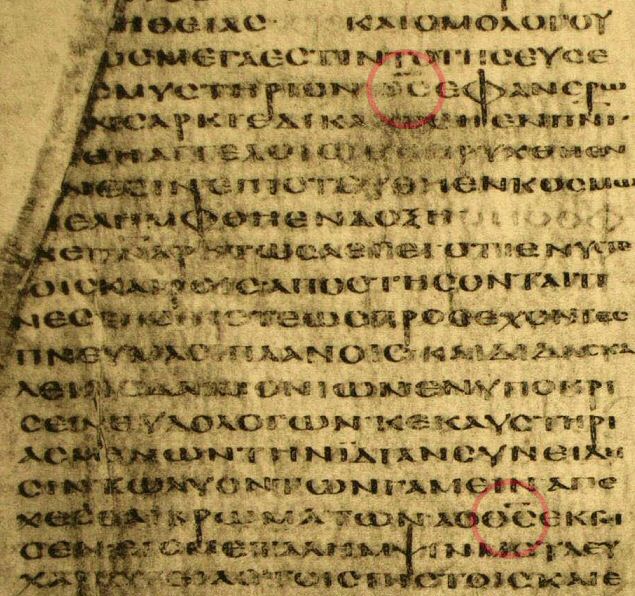- Sep 21, 2023
- 1,698
- 180
Just going to speak about your premises rather than go after all of the points.It is essential to understand that the incarnation itself represents the fullness of God's presence in human form. The birth of Jesus was not the mere arrival of a man but the miraculous event where "the Word was made flesh" (John 1:14). The angel Gabriel announced to Mary that the Holy Spirit would come upon her and that the holy child born of her would be called the Son of God (Luke 1:35). This indicates that Jesus, even from conception, was filled with the Holy Spirit because He was the very embodiment of God. The narrative of Jesus's life must be viewed through the lens of His divine identity as God manifest in the flesh. The idea that Jesus was not born with the Holy Spirit overlooks the profound truth of the incarnation, where the fullness of the Godhead was dwelling bodily from the very beginning of His earthly life (Colossians 2:9). The baptism by John did not impart the Holy Spirit to Jesus but served as a public declaration of His messianic role and the beginning of His ministry.
Jesus beginning His ministry at the age of thirty is symbolically significant in fulfilling the requirements of the Levitical priesthood, where priests began their service at the age of thirty (Numbers 4:3). This symbolizes that Jesus is our Great High Priest (Hebrews 4:14), who was not merely empowered at His baptism but had come to fulfill the law and bring in a new covenant. The anointing and empowering at His baptism were not to impart something Jesus lacked but to publicly affirm His identity and mission as the Messiah to those who witnessed it, such as John the Baptist (John 1:31-34). This moment signified the transition from the preparation (John came to prepare the Way) to the active ministry of the Messiah, revealing the Kingdom of God. Jesus, fully divine and fully human, was already endowed with all authority and power as God incarnate. His baptism marked the divine timing for the public commencement of His redemptive work, not the beginning of His divine empowerment.
While it's true that God has worked miracles through other individuals, Jesus’s works were not merely signs of God's power but a direct revelation of His identity. In John 14:10, Jesus emphasizes that the Father dwells in Him, not merely as an external source of power but as an intrinsic reality of His divine nature. This is distinct from the way others were used by God, for Jesus is the very Word made flesh (John 1:14). His works were not just acts of divine power; they were manifestations of God Himself, revealing His nature and purpose to humanity. Therefore, the miracles of Jesus, unlike those performed by others, were a direct expression of His divine identity as God manifest in the flesh (1 Timothy 3:16).
This statement must be understood within the broader context of Jesus' mission. The "greater works" that believers would do are not about surpassing the nature of Christ's divinity but rather about the scope and reach of the gospel after Jesus' ascension. Jesus, in His earthly ministry, was limited to a specific time and place, but after His resurrection and the outpouring of the Holy Spirit, the Church would carry the gospel to the ends of the earth. The "greater works" signify the global impact of the gospel and the expansion of God's kingdom through the collective body of believers, empowered by the same Spirit that was in Christ. This does not diminish Jesus' divinity but highlights the continued work of God through His people, reflecting the unity and inseparability of the Father and the Son in the mission of redemption.
1. I stated earlier, the word "incarnation" does not exist in the Bible. When John 1:14 says " the Word was made flesh" it doesn't not mean the "Word" incarnated. It means that the "Word" caused flesh to come into being. In other words, Jesus didn't exist until God created him.
2. While it's true Jesus' water baptism revealed him as the Messiah, the Bible doesn't say Jesus was filled with the Holy Spirit from his conception. The Holy Spirit didn't descend upon and rest on Jesus until his water baptism.
3. You seemed to admit, whether knowingly or unknowingly, that Jesus was empowered at his baptism. Therefore, he was not empowered before this. The evidence is there is no record of Jesus doing miracles (in the canonized Bible that is) before the age of 30 years old.
4. You also mentioned Jesus' fulfilling the law and bringing in the New Covenant, but I request your clarification. Are you saying Jesus did this at his water baptism or are you alluding to a different context?
5. Yes, the miracles Jesus did were examples of divine power that came from a different person (the Father) than himself. So Jesus wasn't the source of his miracle power as already shown in a previously reply.
6. I also showed that 1 Tim. 3:16's "God was manifested in the flesh" is rejected by the Trinitarian scholarly community and doesn't find a home in modern Bibles. If you can show otherwise, that would help.
7. Spiritual gifts come from the Father, not Jesus, according to James 1:17, "Every good gift and every perfect gift is from above, and cometh down from the Father of lights, with whom is no variableness, neither shadow of turning."
p.s. - not that I have a problem with it, but are you, in part, generating some of these responses using AI? Okay with me, but just proof read it first. AI can pump out responses fast, but the quality and originality is sometimes lacking. Just something to keep in mind.
Last edited:








